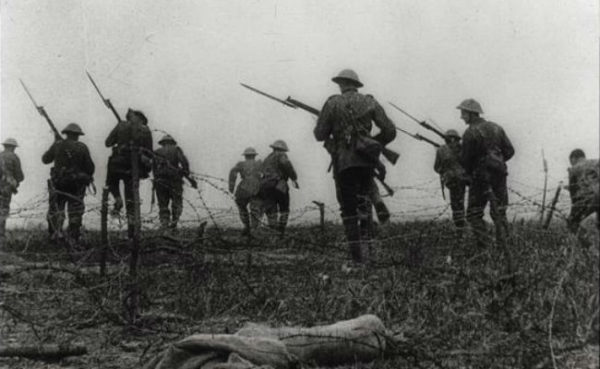Study: Podcasts must add underrepresented veteran voices to better portray Canadian war efforts
TORONTO, March 2, 2022 – Historically Eurocentric and white portrayals have dominated the depiction of Canadian war efforts while the contributions of racial and ethnic minorities have been obscured, says York University media studies Professor Anne MacLennan. “This disparity can be addressed by including lived experiences of Black and Japanese Canadians, and Indigenous Peoples who served in the world wars.”
While archival footage and recorded testimonies are integrated into podcast narratives, the limited number of world war survivors makes recording their voices imperative, adds Jeffrey Donison, doctoral candidate in the communication and culture program at York.
Podcasting marginalized history: Historica Canada’s world war podcast narratives and their audio archival considerations, a recent report Donison and MacLennan co-authored, delves into how podcasts can create alternative war narratives by including minority voices.

Although representations of racial or ethnic minority experiences during the world wars have increased in recent decades, initially there were decades of silence, notes MacLennan. “During the Second World War, languages other than English and French were banned from radio.”
According to the report that analyzed podcasts including The No. 2 Construction Battalion and the Fight to Fight (2016), A Proud Benchwarmer (2016) and Record of Service (2019), historical narratives of First and Second World War veterans, their families and the public’s experiences in general are increasingly popular as audio content for radio and podcasts.
The researchers chose Historica Canada because of its publicly driven mandate to promote Canadian history, its freely accessible and expansive online archive, and its use of podcast production to examine underrepresented Canadian world war experiences.
The authors analyzed both sound and text to identify podcasting’s potential to present alternative war history narratives. “Additionally, we also looked at how these podcast repositories can serve as archives, with access to general public,” says MacLennan.
Published in Radio Journal: International Studies in Broadcast & Audio Media, the report concludes that the contribution of historical podcasts that employ the techniques of oral history with digital long-term storage – and availability simultaneously – satisfies the need for the archived interview for oral history research and makes history available to everyone.
York University is a modern, multi-campus, urban university located in Toronto, Ontario. Backed by a diverse group of students, faculty, staff, alumni and partners, we bring a uniquely global perspective to help solve societal challenges, drive positive change and prepare our students for success. York's fully bilingual Glendon Campus is home to Southern Ontario's Centre of Excellence for French Language and Bilingual Postsecondary Education. York’s campuses in Costa Rica and India offer students exceptional transnational learning opportunities and innovative programs. Together, we can make things right for our communities, our planet, and our future.
Media Contact:
Gloria Suhasini, York University Media Relations






